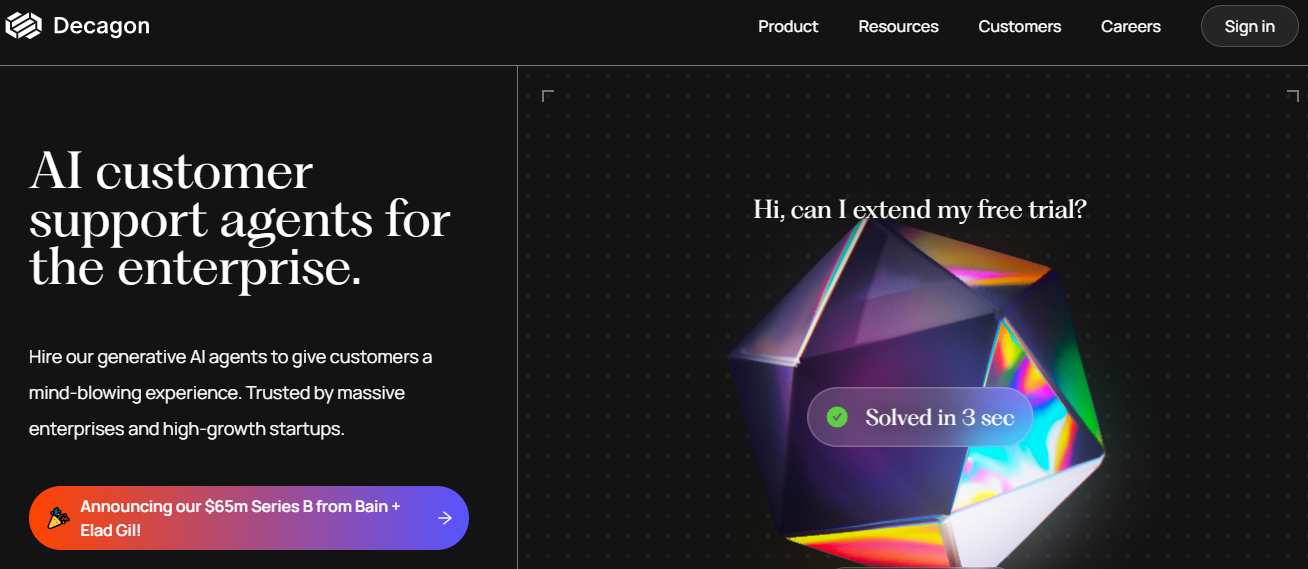How Decagon AI Secured $100M to Transform Enterprise Customer Support
Who is Jesse Zhang?
Jesse Zhang, co-founder of Decagon AI, hails from Boulder, Colorado, and studied computer science at Harvard before founding Lowkey, which was acquired by Niantic; he is experienced in web and AI/ML engineering. Alongside Jesse, co-founder Ashwin Sreenivas shares a background in building successful startups, with both having significant technical expertise and previous companies that were acquired, enabling them to effectively collaborate on Decagon AI's mission.
What problem does Decagon AI solve?
Decagon AI significantly reduces customer service costs and backlogs by automating repetitive tasks, allowing teams to focus on complex issues and optimize operations.

Decagon Homepage
How did Jesse come up with the idea for Decagon AI?
Jesse Zhang and Ashwin Sreenivas founded Decagon AI with a clear mission: to overhaul customer support with AI. Observing cumbersome and costly operations where companies frequently outsourced to large BPOs for handling customer queries, they saw a compelling opportunity to leverage generative AI. This inspired them to automate routine customer interactions efficiently and reduce reliance on human agents, bringing a view of customer service that was more agile and economically viable.










